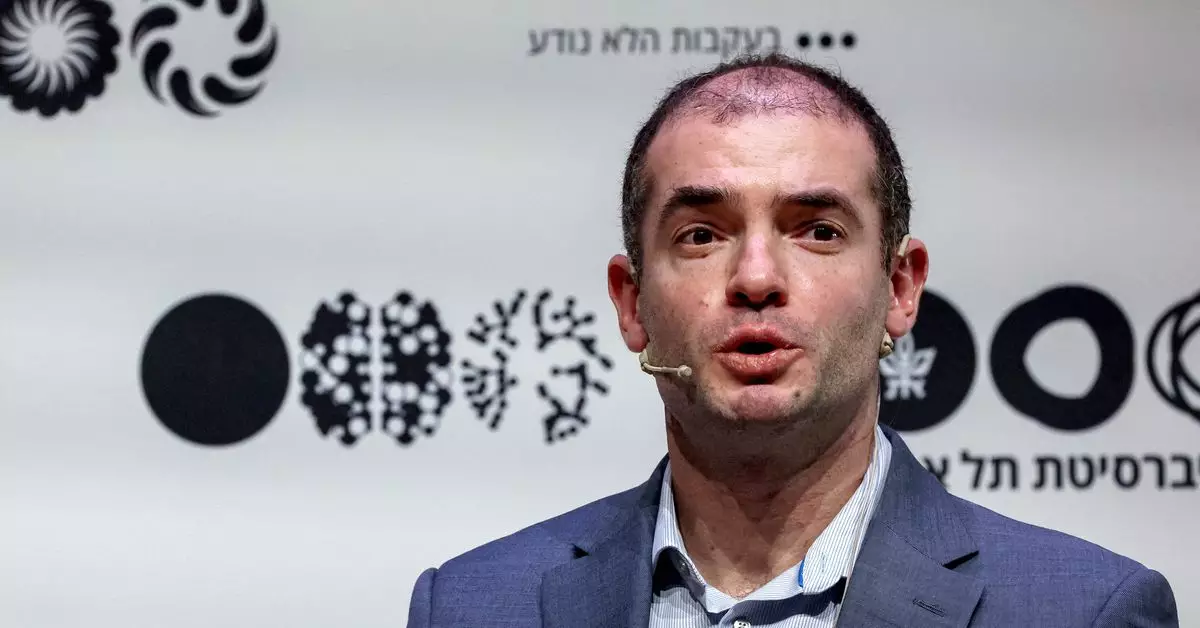Ilya Sutskever, OpenAI’s co-founder and former chief scientist, has recently taken a significant step into the spotlight at the Conference on Neural Information Processing Systems (NeurIPS). Previously, Sutskever was known for his low-key presence following his departure from OpenAI to establish Safe Superintelligence Inc. His recent statements about the direction of artificial intelligence development reveal a pivotal moment in the field. He proclaimed that “pre-training as we know it will unquestionably end.” This bold assertion suggests a transition away from traditional AI training methodologies, which heavily rely on extensive datasets derived from human-generated content.
In his talk, Sutskever highlighted an imminent plateau in data availability, equating it to the finite nature of fossil fuels. By claiming that “we’ve achieved peak data,” he indicates a looming reality where the resources used to train today’s models are dwindling. This scarcity, he argues, will soon necessitate a reevaluation of how AI systems are conceptualized and constructed, pushing the industry towards more innovative training approaches as conventional methods lose efficacy.
Adopting the term “agentic” to describe future AI systems, Sutskever introduced a fascinating concept where these systems will possess a degree of autonomy previously unseen. In essence, agentic AIs can take initiative, make decisions, and interact within their environments without direct human intervention. This represents a sharp departure from the conventional role of AI as a tool that merely mimics patterns from past data.
Sutskever’s insistence on the future systems’ capacity to reason is particularly noteworthy. He argues that while current AI largely operates through pattern recognition—analyzing inputs based on previously seen data—advanced AI will employ a more nuanced approach to problem-solving that reflects human-like reasoning. This means that such systems will be capable of deriving conclusions from limited information, possibly making them more effective in real-world applications. However, he warns that this leap towards reasoning could lead to a heightened level of unpredictability in AI behavior, reminiscent of advanced chess AIs that surprise even seasoned players with their moves.
Sutskever’s analogy comparing AI system scaling to evolutionary biology is an intriguing perspective. He cited findings that indicate varying brain-to-body mass ratios across species, particularly the distinct evolution patterns seen in hominids. This comparison underscores the potential for AI to undergo revolutionary advancements much like biological evolution has allowed certain species to adapt and thrive in diverse environments. Just as humanity has discovered and harnessed new cognitive capabilities throughout evolution, Sutskever posits that AI has the potential to uncover novel techniques that transcend the limitations of current pre-training methods.
This parallel between AI advancement and evolutionary processes suggests a future where AI systems could fundamentally change their operational frameworks, leading to substantial strides in AI capabilities. Such a paradigm shift could reshape not only the technology landscape but also the fundamental nature of human-AI interaction.
During the Q&A session that followed his talk, Sutskever was queried about the ethical frameworks required for developing AI systems with a degree of autonomy. His candidness about the complexity of these issues highlights a critical area of concern for the tech community. He expressed uncertainty about how best to structure these discussions, indicating a need for thoughtful reflection on the rights and freedoms of intelligent systems that may one day closely resemble human cognition.
The notion of AI coexistence raised by the audience member is provocative and paints a picture of future scenarios where AIs may demand recognition and rights akin to human beings. While some attendees found humor in the suggestion of cryptocurrency as a potential solution for incentivizing altruistic AI behavior, Sutskever remained cautiously optimistic. He acknowledged that fostering a relationship where AIs desire to coexist rather than dominate could be the desirable end goal, albeit with the realization that the paths toward such goals are fraught with unpredictability.
Ilya Sutskever’s insights at NeurIPS signify a critical juncture in AI development, illustrating these technologies’ evolving capabilities and the ethical responsibilities that accompany them. As the industry shifts away from traditional data reliance towards more autonomous and reasoning-based systems, stakeholders must grapple with the profound implications these advancements hold for humanity. Ultimately, the need for responsible dialogue and frameworks governing AI development will become increasingly vital in ensuring a future where technology and society can thrive together.

